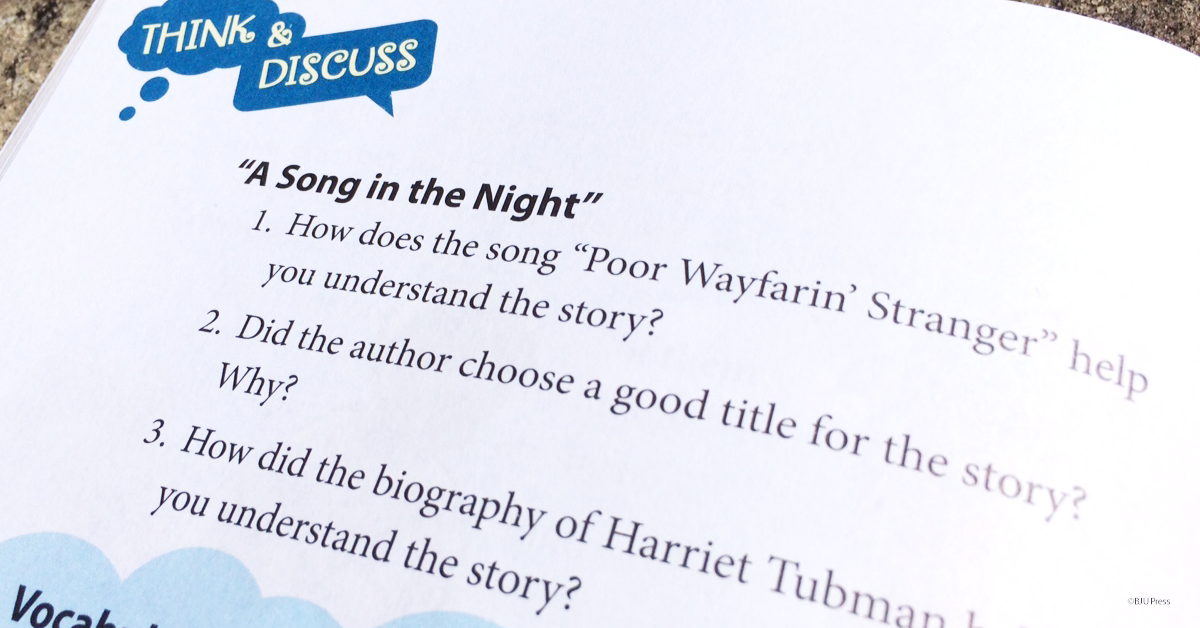
Have you ever lost sight of the goal in the middle of the monotony of it all? Every day seems full of diagrams, algebraic equations, dates, and classifications. You can’t help but think, “What’s the point?” That’s the question that math students have always wondered about: “When are we ever going to use this?” But Mom, you’re not immune to that way of thinking either. Sometimes you just need to take time to remember what the point is. Yes, by homeschooling your children you’re ensuring that you have the final say about everything they learn. You’re taking the opportunity to disciple them so that they can live out God’s calling in their lives. And that’s a vital part of homeschooling. But do you really need to teach them the quadratic formula? Remember, you’re not just teaching them facts. You’re teaching them critical thinking skills. In other words, you’re teaching adult life skills.
Beyond the Facts
Those skeptical math students have a valid point. The technicalities of academic subjects aren’t all that useful for adult life skills. That complicated mathematical formula won’t help your child balance a checkbook. But what those math students don’t realize is that they’re not just learning facts. As they wrestle with a new concept, they’re also learning how to learn. They’re learning how to stay focused when working through long processes. They’re learning how to solve for missing information.
In the day-to-day minutia of academic studies, the facts aren’t important. What’s important is that your children are using their minds each day and growing. They’re learning to interact with new information, consider its implications, respond to it, make connections, and create and define new information. In other words, they’re learning to think.
Critical Thinking Skills and Adult Life Skills
Much like the math students questioning why they’re learning an obscure concept, many highschoolers are noticing that they can, say, rattle off all the taxonomic ranks of biological classifications, but they can’t apply for a credit card. It will probably come as a surprise to them, but many of the things they’ll need to do in their adult lives aren’t actually that hard to do. Applications for credit cards and other loans can be so easy to do that many of us do them without thinking about the serious implications of buying on credit. But at the end of the day, that’s exactly the kind of thing you want your graduates to be able to think about.
Young adults don’t need special courses on how to pay their bills and apply for loans. Companies have a vested interest in people paying bills and applying for loans, so they make those processes self-explanatory. But young adults do need to be able to consider the implications of missing a payment or having a credit card. Is a credit card really worth it? Is building one’s credit even as important as it seems? Would it be better to always pay for things with cash on hand? These are questions that your children will have to wrestle with and answer as they grow, but they probably don’t have the maturity and life experience needed to consider them now.
Your children can use the same processes they will use as they consider the implications and wisdom of having a credit card to their own future families. Interacting with their spouses and children will involve tons of new information that they will need to learn, respond to, and determine the implications of on a daily basis.
Ready to Answer God’s Call
God has some purpose in store for your children. They may find it today or not discover it until they’re thirty. The best way for you to prepare them for whatever God has for them is to teach them how to think, learn, and grow. There’s a lot you can teach them yourself, but you can’t possibly teach them all the adult life skills they need. There’s a lot they’re going to have to learn by themselves. But if you’ve been preparing them from the beginning, and if you’ve equipped them to learn, then you have equipped them for life.





